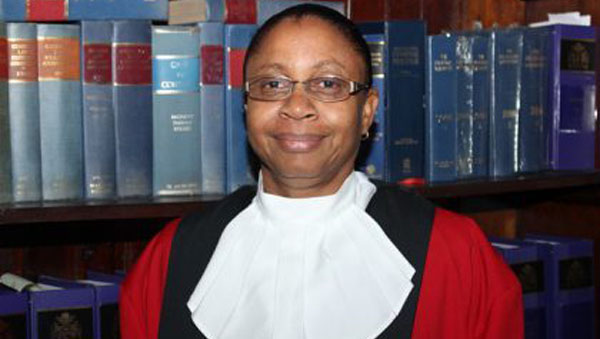GEORGETOWN, Guyana, August 14, 2019 (CMC) – The High Court ruled, today, that the house-to-house registration exercise, being conducted by the Guyana Elections Commission (GECOM), is not unconstitutional or unlawful.
“The house-to-house registration is not a violation of the Constitution, in and of itself, as a means of validation as the applicant had emphasised,” acting Chief Justice, Roxanne George-Wiltshire, said, in a ruling, lasting just over two hours, in which she also rejected the application to set a date for elections by September 18, this year.
She said the CCJ did not fix or imply that general elections must be held by September 18, this year, three months after the country’s highest court had validated the no-confidence motion that effectively brought down the David Granger government and made it a “caretaker” administration.
The Acting Chief Justice said that an objective reading of the entire judgement, delivered by the CCJ, which is the country’s highest court, last month, “and not part of it, leads to the inevitable conclusion that the Court did not put a date on the holding of election”.
The CCJ had ruled last month that while it cannot “establish a date on or by which elections must be held” it also could “not lay down timelines and deadlines that, in principle, are the preserves of political actors guided by constitutional imperatives”.
But the CCJ said it must assume that “these bodies and personages will exercise their responsibilities with integrity and in keeping with the unambiguous provisions of the Constitution, bearing in mind that the no confidence motion (against the present administration) was validly passed, as long ago as 21st December 2018″.
Under the Guyana Constitution, elections must be held, within a 90-day period, following the passage of a no-confidence motion in the parliament or unless extended by the legislative body.
Attorney Christopher Ram had filed the application to stop the house-to-house registration exercise, but Attorney General and Minister of Legal Affairs, Senior Counsel Basil Williams, had argued that GECOM had not violated any law by moving ahead with the registration exercise and therefore it should continue.
In his fixed-date application, Ram’s attorneys had asked the High Court to declare that the registration exercise is in violation of the letter and spirit of the Guyana Constitution, and the judgment and consequential orders, made by the CCJ, in the consolidated cases, stemming from the passage of a no-confidence motion against government, last December.
The lawyers had also argued that since passage of the motion against the coalition administration, neither the Cabinet nor President has resigned; nor has the Head of State issued a proclamation dissolving the National Assembly or fixed a date for elections to be held within the three months as is stipulated by Article 106 of the Constitution.
Justice George-Wiltshire supported the arguments of the CCJ, noting also that it was not for her court to set a date for elections, reminding that it is the task of the various stakeholders.
President Granger has said he would announce a date for “credible” elections, here, once GECOM provides him with the information that it is fully prepared to conduct the polls.
Former attorney general, Anil Nandlall, told reporters that he intends to appeal the Court’s ruling since there cannot be any open date for elections. He maintains that the Court could have set a date or timeline.
In her ruling, Justice George-Wiltshire urged GECOM to consider other forms of verification, adding that “GECOM cannot operate as if it is in a normal elections cycle”.
She said that nationals, who had previously been registered and residing overseas, could not be removed from the National Register of Registrants, and that unless these persons changed their addresses, through a new house-to-house verification process or by registering at a district office, they would have to vote in the district in which they were registered.
She ruled that the law provides for the General Registrar and the Chief Immigration Officer to play roles in verifying the register.
 Pride News Canada's Leader In African Canadian & Caribbean News, Views & Lifestyle
Pride News Canada's Leader In African Canadian & Caribbean News, Views & Lifestyle





